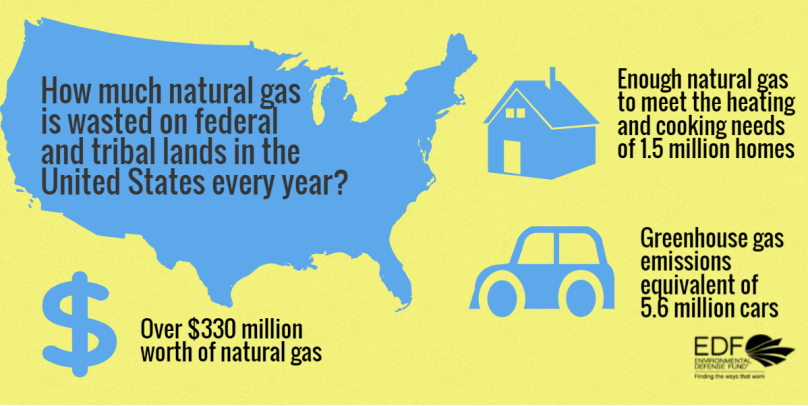New Report Highlights Need for BLM to Slash Methane Waste, Pollution
 The U.S. Bureau of Land Management should do more to protect taxpayers from unnecessary waste of their natural gas resources. That’s the main takeaway from a new report from the nonpartisan U.S. Government Accountability Office. Its findings again underline the urgent need for BLM to finalize strong new standards to reduce methane waste.
The U.S. Bureau of Land Management should do more to protect taxpayers from unnecessary waste of their natural gas resources. That’s the main takeaway from a new report from the nonpartisan U.S. Government Accountability Office. Its findings again underline the urgent need for BLM to finalize strong new standards to reduce methane waste.
Methane is both the primary component of natural gas and a very potent climate pollutant. In fact, pound for pound, methane is more than 80 times worse for our climate than carbon dioxide in the short term. This means that unnecessary methane waste and pollution like the GAO found in this new report is a double whammy – depriving taxpayers of revenue due to us for the development of our natural gas resources and dangerously accelerating climate change.
The GAO finds that BLM needs more consistent policies in place to better limit methane waste and pollution from the oil and gas production it oversees on hundreds of thousands of acres of federal and tribal lands. It’s a big problem.
The business consulting firm ICF has estimated that $330 million per year in federal and tribal natural gas resources are wasted due to venting, flaring and leaks at well sites. And this means taxpayers are also losing out on tens of millions of dollars in tax and royalty payments each year that could be funding better roads, schools and other needed infrastructure in impacted communities.
Luckily, with the support of a diverse variety of stakeholders across the West, BLM is currently finalizing new rules that can help stop this waste and pollution.
In January, the BLM issued a strong proposed rule aimed at curbing natural gas waste and pollution on the nation’s federal and tribal lands. With a few key improvements, such as ensuring frequent leak inspections, and efforts to minimize flaring to the greatest extent possible, these rules will reduce waste of taxpayer owned resources and minimize the impact of oil and gas operations on the nation’s communities and families.
As the GAO report illustrates, it is now time for the agency to strengthen and finalize these needed rules without delay.












